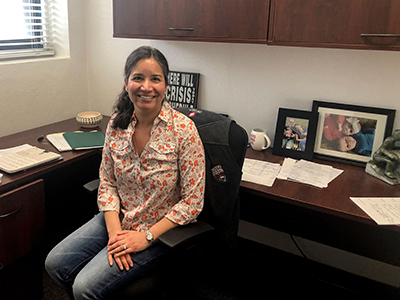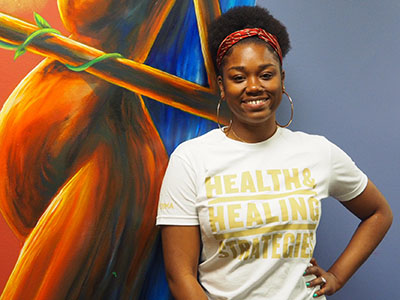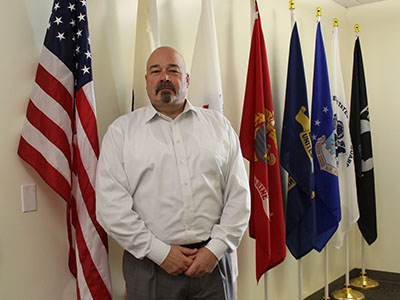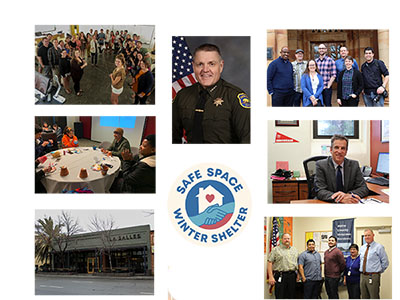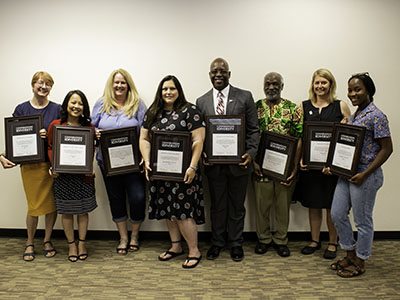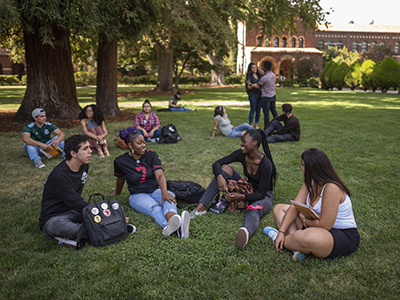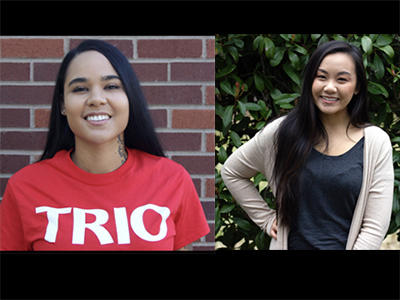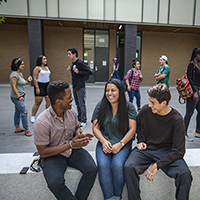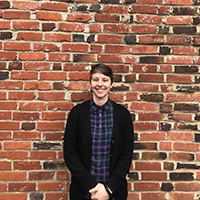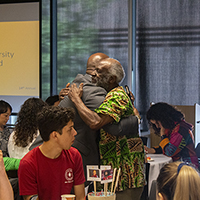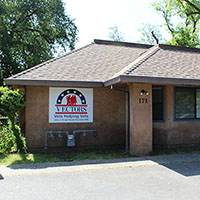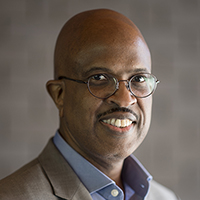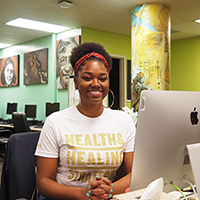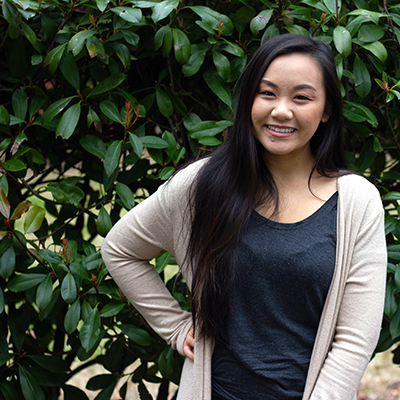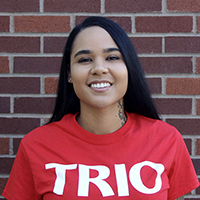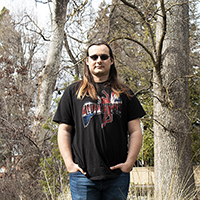Stories
Explore some of the ways CSU, Chico celebrates and advocates for diversity.
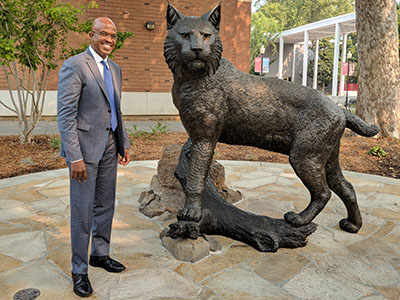
University Communications Prioritizes Diversity
How Garrett Caldwell, the new Director of University Communications, is promoting diversity on Chico State’s campus.
Resources
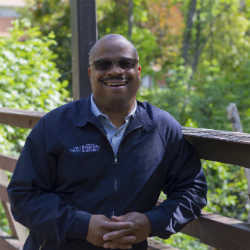
Please contact Tray Robinson with any questions or comments at trobinson@csuchico.edu. Also check out the Office of Diversity page.
Our Amazing Team
Check out the writers, editors and designers who worked behind the scenes.
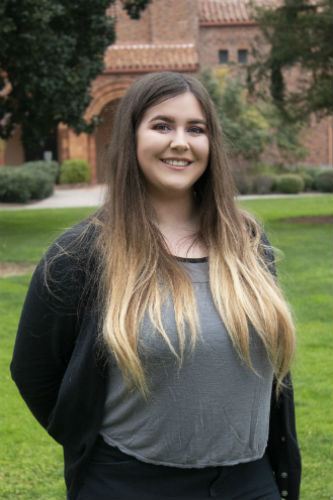
Shannon White
Account Executive
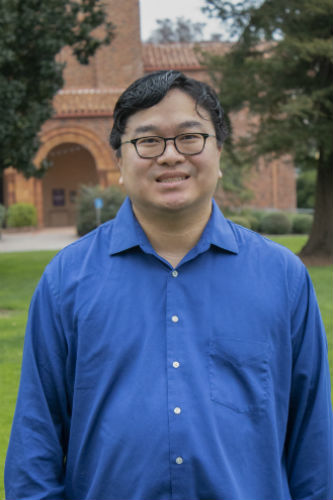
Martin Chang
Web Designer
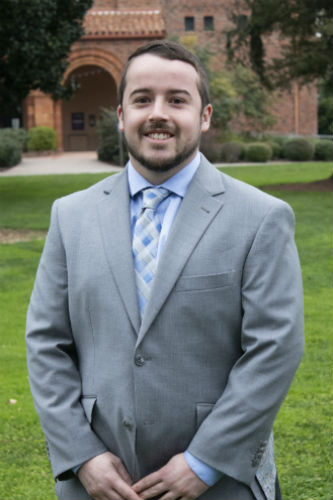
Noah Enns
Writer
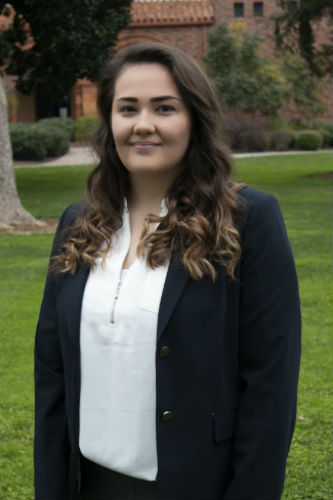
Lauren Gomez
Videographer
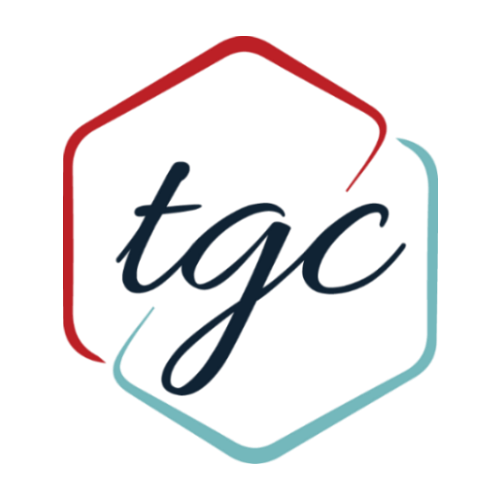
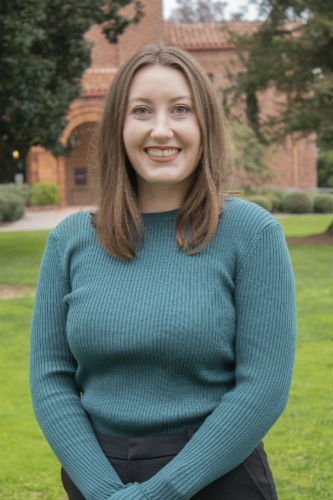
Kendra Clark
Photographer
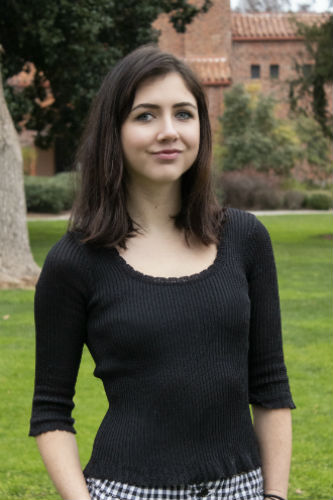
Kailey Gaffikin
Writer
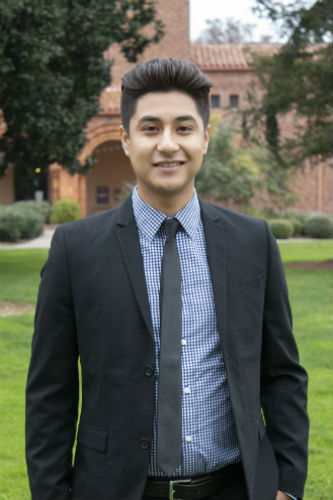
Roberto Burgos
Writer
Chico State on Fostering Inclusivity for a Minority-Majority Campus
By Kailey Gaffikin
Photos by Jason Halley
Embracing diversity and fostering inclusivity at California State University, Chico is necessary to provide equal opportunity and success for all students of varying backgrounds, identities, and ethnicities. Chico State is now a minority-majority campus, meaning that the current enrollment data projects minority groups as the majority of students enrolled as of fall 2018. Kim Guanzon, director of admissions, explains why this shift is important for the Chico State community.
“As we grow our diversity, it makes the student experience here much more enriching and gives them a better perspective after graduation,” said Guanzon. “Students will have a much more comprehensive understanding that our world is a diverse place.”
Serving as the second-oldest university in the CSU system, Chico State was once a campus whose majority enrollment was white students. However, as of fall 2015, Chico State became a Hispanic-serving institution, with a change in demographics for minority groups, first-generation students and students of color.
This demographic shift is not only reflective of California’s diverse population and variety of ethnic backgrounds, but it is also reflective of Chico State’s outreach programs that encourage diversity among all students to lead an inclusive environment for anyone seeking higher education.
Kate McCarthy of undergraduate education explains current outreach programs in place to increase diversity on campus.
“In my unit, we have the Student Success Center, which has 48 high school partnerships that we have built relationships with for years all over the state,” McCarthy said.
”"Everywhere on campus, we need to create an inclusive environment, whether it is in a meeting or a classroom, and all of our practices should be inclusive.”
-Teresita Curiel
The goal of Chico’s Student Success Center is to provide students, especially first-generation and low-income students, with the resources and opportunities to support them on their path toward a degree. Other outreach programs available to support first-generation students include the Educational Opportunity Program and TRIO Student Support Services.
California’s diverse demographics and Chico State’s outreach programs to encourage diversity explains why we are now a minority-majority campus. However, the next
step toward embracing this change is educating people who may have trouble adapting to change on why diversity is important, while also recognizing how Chico State’s diverse demographics encourage the University to continue to support an inclusive environment for student success.
Teresita Curiel, director of Latinx Equity and Success, explains the importance of inclusivity and the opportunities that it presents for student success.
“Students want to be seen, heard, and appreciated,” said Curiel. “Everywhere on campus, we need to create an inclusive environment, whether it is in a meeting or a classroom, and all of our practices should be inclusive.”
The current enrollment is 17,488 students, with an overall representation of 48.9 percent students of color. A strong focal point of this shift has been in Chico’s increasing enrollment of Hispanic and Latino students, with approximately 33.3 percent of students enrolled. Other minority groups represented by Chico State’s diverse population include 0.5 percent American Indian and Alaskan Native, 5.4 percent Asian, 2.6 percent Black and African American, 3.2 percent Non-Resident Alien, 0.2 percent Pacific Islander, 5.2 percent two or more races and 6.6 percent unknown.
Other diverse students within these demographics include DREAM students, first-generation students, foster youth, and veterans.
By understanding these demographics, the Chico State community continues to progress toward fostering a welcoming university for all and one that encourages providing an inclusive environment through programs, opportunities, and experiences for students of diverse backgrounds.
Spring 2019
University Diversity Council Introduces Charge for Diversity Efforts
By Roberto Burgos
The University Diversity Council, led by Dr. Milton Lang, vice president for Student Affairs and chief diversity officer, has set diversity and inclusion as the highest priorities on its agenda.
The council is made up of members from across campus divisions. Students, faculty and staff form part of the UDC and meet once a month to discuss the climate on campus as well as the recruitment and retention of diverse faculty, staff and students. They also discuss programs and activities that promote equity, diversity and inclusion on campus.
For example, the UDC is currently working to make sure hiring committee members and incoming students go through the proper diversity trainings.
Kate Post works for University Communications as digital engagement lead and is also a team member on the UDC.
Post said the work the UDC does helps bring ideas that were struggling alone and brings them to the table to collaborate to push for diversity and inclusion.
One of the UDC efforts she is involved with is the “Did You Know?” email campaign for faculty and staff. The campaign focuses on sharing quick, short facts associated with diversity and inclusion.
“The campaign is really important to the work we do,” said Post. “We prioritize informing campus members about events and activities.”
Post believes Dr. Lang’s role with UDC is crucial to the development of diversity and inclusion on campus.
“Having Dr. Lang lead the committee is really important,” said Post. “It says that the university cabinet leadership is committed to this work and making it happen.”
”One of the University Diversity Council main priorities is to increase workforce diversity.”
- Dr. Michelle Morris
Dr. Lang said the purpose of the UDC is to provide Cabinet with recommendations to advance diversity efforts here at Chico State.
“We take a look at what we’re currently doing for diversity and inclusion,” said Lang. “But also, we explore what we’re not doing, what we should be doing and what we should recommend to the university to move us forward.”
Dr. Michelle Morris is a professor in the Department of Nutrition and Food Science, an executive team member of the UDC and serves as faculty diversity officer in the Office of the President.
One thing Dr. Morris pointed out when discussing diversity efforts, was that people tend to think mostly about race or ethnicity. They forget about other forms of oppression that exclude people and their ideas because of their differences.
“An example is weight based stigma and discrimination. It’s prevalent in education and healthcare systems,” said Morris. “In the workplace, people might get passed up for promotions or might not get hired for a job because people have implicit biases about people in larger bodies.”
Dr. Morris has been a part of the Chico State community for almost two decades. She said that the student population is dramatically different than when she first arrived in Chico in 2000.
“One of the UDC’s main priorities is to increase workforce diversity,” said Morris. “We know that our faculty and staff aren’t nearly as diverse as our student population.”
The Office of Diversity and Inclusion is a partner of the UDC and advances the UDC’s mission and goals. Dr. Lang said the Office of Diversity and Inclusion is helping the UDC examine and improve the social climate on campus.
“Diversity is a priority for us as we develop a strategic plan because people should feel welcomed here, they should feel empowered here, they should feel a sense of belonging,” said Lang. “They should feel like Chico is a place, not only where they can be successful, but where they can truly thrive.”
University Diversity Council Charge
The University Diversity Council (UDC), led by the Chief Diversity Officer and made up of California State University, Chico staff, faculty, and students, was established in fall 2014. In aligning our mission and goals with Chico State’s strategic priorities, the University and UDC are committed to fostering dynamic, high-quality and inclusive learning environments both within and outside of the classroom.
Recognizing that diversity of thought and lived experiences constitute the central and core values of the Academy, and that a robust and thriving democracy depend centrally on these ideals, it is critical that these values manifest in all aspects of our work. As such, the UDC is committed to engaging diverse, intercultural, and intersectional viewpoints and identities to encourage and promote an atmosphere that allows all individuals to attain their greatest potential and achieve the greatest benefits from our Chico State campus community.
The campus community encompasses a spectrum of identities, beginning with the Mechoopda land where Chico State sits to the global family that the University embraces. The UDC seeks to inquire about and address challenges and opportunities that further the University’s position as a change agent working towards an equal and equitable society.
The UDC will engage on- and off-campus partners in order to provide recommendations to University Executive Leadership for implementation.
To find out more about the UDC, the charge and their work on equity, diversity and inclusion, please visit https://www.csuchico.edu/diversity/udc/index.shtml
Spring 2019
Honoring Diversity and Inclusion at Chico State
By Shannon White
Every spring, the Conversations on Diversity and Inclusion Planning Committee holds an award ceremony that honors members of our campus community who contribute to our mission in outstanding ways. The Office of Diversity and Inclusion, Department of Multicultural and Gender Studies, and Gender and Sexuality Equity Coalition is extremely grateful for these individuals for their outstanding contributions. Congratulations and thank you.
Pulling us Together Award
Awarded to: Dr. Milton Lang, Vice President for Student Affairs
This award is presented to the organizer(s) of an event that was noteworthy for drawing people together to take a bold step toward social change. The event may involve teaching the campus community eye-opening lessons about diversity issues, galvanizing a response to a particular social justice issue, or representing those who are often marginalized in U.S. society.
Lifetime Achievement Award
Awarded to: James Luyirika-Sewagudde Jr., International and Exchange Advisor
Understanding diversity is the work of a lifetime. Helping others to understand it is the work of an extraordinary lifetime. This award is presented to an individual who has brought the campus closer to its vision of inclusiveness through her or his cumulative daily efforts to promote understanding and collaboration across lines of gender, race, culture, class, and sexuality.
Promising Newcomer Award
Awarded to: Rachel McBride, Director of Tribal Relations
This award is presented to an individual whose fresh perspective and energy galvanize campus diversity work and facilitate new approaches to old problems. The award honors the newcomer’s vision and invites a sustained commitment to its realization.
After Chico Award
Awarded to: Jaime Barajas, Alumni
The After Chico Award recognizes that the proof of a good education is what you do with what you’ve learned. In this award, we honor Chico alumi’s outstanding contributions in the field of diversity activism, service, education, and/or celebration.
Taking it to the Streets
Awarded to: Pa N Vue, Writing Center Coordinator
This award highlights a group’s or individual’s timely response to an event or issue of local, national, or global significance. We particularly want to honor students, staff, or faculty who have provided a direct service to communities or individuals impacted by the topic.
Walk the Line Award
Awarded to: Megan Kurtz, Lecturer in Recreation, Hospitality, and Parks Management Department
The Walk the Line Award recognizes the work to achieve social justice is both demanding and risky. Risks include excessive scrutiny and burn out from juggling multiple roles (e.g., mentor, teacher, advocate). This award recognizes one who takes such risk without the protection of privilege and safety nets such as tenure or secure full-time employment.
Behind the Scenes Award
Awarded to: Dr. Ela Thurgood, Professor in English Department
Just as in a movie or in theatre, much of the diversity efforts are conducted and maintained behind the scenes and out of public view. This award honors the individual behind the scenes, working diligently and often without recognition to ensure that the show goes on seamlessly and successfully.
Teach Back Award
Awarded to: Oghenefejiro “Feji” Etibo, Psychology Major
The Teach Back Award recognizes the fact that while students most often learn from
their professors, they also teach their instructors and peers. With this award we honor
one of our students who has consistently been active either inside or outside of
the classroom and contributed to diversity education on campus. The recipients receive a $500 award, donated by SF Invest.
Taking it to the Classroom
Awarded to: Dr. Kim Jaxon, Associate Professor, English
Individuals who address diversity issues in the classroom often must deal with sensitive and challenging subjects, resistant or apathetic students, and/or professional scrutiny. It is a daunting task that many choose not to address. The Taking It to the Classroom Award recognizes an outstanding faculty member who possesses the courage and creativity required to successfully engage diversity issues in the classroom.
Spring 2019
Jerry L. Knight House Gives Veterans A Fighting Chance
By Noah Enns
Lending a helping hand, no matter how big or small, can make an impact on someone’s life.
The Veteran Executive Corporation to Organize Rehabilitative Services (VECTORS) program provides a variety of needed services to veterans within the Chico area.
In a house on Rio Lindo Avenue, known as the Jerry L. Knight House, you can find 15 male veterans getting the assistance they need to make their transition back to independent living.
The Jerry L. Knight House was named after the program founder Jerry L. Knight, who in 1991 successfully lobbied Congress to establish the only grassroots initiated veterans center in the United States.
Many veterans face obstacles when transitioning to independent living after serving their country, primarily due to post-traumatic stress and other service-related issues.
VECTORS offer services such as a clean and sober living environment, referrals to community agencies for specialized treatment, help with retrieving Veteran Affairs documents, guidance with requesting services, psychological and medical assessments, and assistance for applying to school and seeking employment.
“They let you know what programs are out there, who’s out there, who can help you and what’s available,” said Rolland Barrett, a resident veteran of both the US Marine Corps and Army.
Veterans must sign a rules and regulations agreement before living in the Jerry L. Knight House, and during their residency they must also perform chores throughout the week to ensure everyone contributes to the house.
The veterans in the house are self-sufficient and do their own cooking. They typically cook for themselves, but some cook for multiple people within the house. Having the veterans live in a self-sufficient environment better prepares them for the transition to independent living.
The average stay is 6-18 months, but residents can stay for a maximum of two years. To keep their stay, residents apply for or attend school, seek and gain employment, or must earn a fixed income.
”Our mission is to help veterans succeed in their individual lives and help alleviate any obstacles in their way to becoming successful”
-Larry Langwell
Another benefit of staying in the house is the family-like relationships that are built between the residents.
“These are all my brothers here,” said Jack Strosnider, a veteran from the Navy. “I was living in my car for a month, and I had no place to go.”
Strosnider was affected by the Camp Fire in November and was struggling to find a place to live. Being a resident of the Jerry L. Knight House has given Strosnider both a home and a sense of family.
Residents also contribute events in the community. These events typically involve other veterans within the community and other organizations.
VECTORS is a non-profit organization and only has one paid staff member. All of the board members are volunteers and are veterans, and two board members were once in the VECTORS program.
“It’s really rewarding,” said Board of Director President Larry Langwell. “If not for the grace of God, we could be that homeless person too.”
Armando Hernandez, executive director, spends about 20 hours a week at the Jerry L. Knight House assisting veterans and providing upkeep of the house. Hernandez believes that it is important to help veterans in our communities.
“If we didn’t have vets or men and women that help support and defend our country, then this place would be very different,” said Hernandez. “We’re grateful and it’s our responsibility to try and help them out as best we can.”
Since the VECTORS program is a non-profit organization, the program is driven by local funds. The annual budget is relatively small and kept at around $50,000. Chico Rotary Club partnered with VECTORS to install solar panels on the house which saves VECTORS thousands of dollars a year in utility cost.
VECTORS wants to grow as an organization, however, there is currently not enough funding to do so. The program states that the most helpful donations are money, food, and clothing.
The main areas of growth VECTORS is working toward is providing a similar house for women, establishing another executive director position, a grant writer to bolster their programs, house upgrades, and a transportation fund. More funding for VECTORS would mean more opportunities to support other veterans in the Chico area.
“Our mission is to help veterans succeed in their individual lives and help alleviate any obstacles in their way to becoming successful,” said Langwell.
To learn more or to donate to Chico VECTORS call 530-343-3040 or contact their email: vectorsofchico@gmail.com or Facebook: VECTORS - Transitional Housing for Veterans.
Spring 2019
Celebrating Diversity Around Chico
By Noah Enns, graphic by Kendra Clark
To see the graphic click here.Spring 2019
University Communications Prioritizes Diversity
By Roberto Burgos
Chico State appointed Dr. Garrett Caldwell as executive director of university communications, in October 2018. The director is at the forefront of all communication efforts for the university and his extensive experience in communications and diversity efforts makes him the prime candidate to take on these responsibilities.
“Part of my role is to ensure that the communication team is coordinated so it reflects the brand, the voice and direction of the organization,” said Caldwell.
His extensive experience in communication and media relations has helped Caldwell gain leadership skills that prepared him to take on the task of executive director of university communications.
One of the challenges Caldwell discussed for university communications is helping spread the message of diversity and inclusion on campus. The task requires accommodation of beliefs and educating the public on cultural and ethnic differences.
Caldwell said he recently had the chance to attend a University Diversity Council meeting and expressed how much of an impression their work made on him.
I was most impressed with the strategy that Dr. Lang is taking to Cabinet that outlines the Key Performance Indicators that we’ll be striving to meet as an institution in diversity,” said Caldwell. Coming from a university in Southern California working with diversity efforts, Caldwell was pleased to see how specific the KPIs were.
Caldwell has dipped his toes into many different fields throughout the years. Caldwell has ventured into journalism, public relations, broadcasting, marketing and various top-level communications roles.
He’s had many occupations in his career including as a pastor, TV news anchor, filmmaker and adjunct professor. Caldwell earned a bachelor’s degree in theology and communications from Oakwood University, a Master of Divinity from Andrews University, and a Doctor of Ministry from Wesley Theological Seminary.Caldwell has been working with an institution affiliated with his denomination most of his career and wasn’t sure what to expect from a state-affiliated institution. Caldwell believes Chico State holds similar values to his.
“It’s an institution that has a very strong sense of mission and a sense of purpose that resonates deeply with me,” said Caldwell.Caldwell is aware there are efforts on campus to increase diversity and expressed his joy to be part of the team pushing for inclusion on campus.
“One of the things that’s really important for students, when they matriculate on campus, is to be able to just look and see people that look like them in faculty, in staff and in leadership,” said Caldwell.Part of his role is to get experts on campus connected with outlets that want to cover them.
“For example, during the fire there were a lot of opportunities for experts on campus to interface with news outlets, national news outlets and international outlets,” said Caldwell.
Caldwell oversees a high performing team of communicators. He is in charge of designers, a social media team, a digital media team, writers and media relations coordinators whom he tasks with reaching out to news outlets and getting stories about the institution out there.
His goal is to amplify the voice of Chico State, not only in the region, but nationally and internationally as well.
“I think in this immediate area we are certainly well known but I would like to highlight and raise the profile of the university overall.”
Although Caldwell is proud of the vast experience he’s gained throughout his career, he recognizes that there is always room to grow and learn as a professional and a person.
Caldwell hopes to be more involved with the student body and points out that students need to be exposed to diverse environments and see people that reflect them and their communities.
“They need to more than see them, they need to interact with them and say ‘hey I got something going on in my life. Let’s sit down and talk,’” said Caldwell. “I look forward to understanding how to be available to make that happen.”
Spring 2019
Code switching: Navigating one’s experience
By Kailey Gaffikin
Students Kimani Davis II, Ka Lynda Watts, and Eric Urena all know what it’s like to code switch. Although their linguistics differ, their intent remains the same: using a specific language or way of speaking to adapt to their current socio-cultural environments.
In academia, the act of code switching is increasingly prevalent among college students. Depending on their situation, individuals subconsciously adapt their language, behavior, dialect, and sometimes even appearance, to project a specific identity in order to assimilate to their environment and fit in with their peers. At the university level, students can be seen using alternate languages to be better understood by others, talking in a dialect that differs from the one they commonly use with friends and family, or dressing in a more “professional” and “appropriate” manner.
”Code switching is a matter of communicating with one another to figure out where we are at.”
- Eric Urena
“For me, code switching occurs in someone who is bilingual, and it does not have to be a specific language,” said Urena. “For example, code switching for me includes switching between Spanish and English.”
Urena added that he views code switching as a neutral act which comes naturally for him.
“Code switching is a matter of communicating with one another to figure out where we are at and what level we are in to have a good conversation where we are both comfortable with what we are saying,” said Urena.
However, code switching is not dependent on language alteration alone. Those who are monolingual still code switch, but the ways in which they do so differ by the modification of sociolinguistics patterns to adapt within a specific culture. For example, someone dressing up for a professional environment that differs from how they’d usually dress. These identity modifications can be subconscious and may include modification of dialect, behavior, appearance, accent, voice, and register.
“Code switching is when you change your language to fit the situation at the time,” said Davis. “For me, it is having to turn on my ‘white voice’ and changing the way I usually speak.”
Davis explains how he code switches and why he feels he has to do so.
“It is all about adapting to another environment. Being a black male, usually we change our appearances, our voices, and the words we use to fit the dominant culture,” said Davis. “It is something I have to do, because in many situations, you are not seen the same way or able to be respected in the same way because of the way that you are.”
On a sociocultural level, code switching to fit in with the dominant culture also ties into the concept of respectability politics. This focuses on how individuals of marginalized groups adapt and conform to socially acceptable forms of communication as outlined in the culture of a dominant group in society in order to protect themselves from prejudice and injustices.
Despite how code switching can have an apparent impact on one’s identity and sense of self in differences of communication in academic settings, Ka Lynda Watts said she code switches while still maintaining her unique identity. Watts explains how she code switches depending on the professional environment, if she is working or if she is public speaking.
“I only code switch because of the professionalism and because those are the standards and expectations that are set upon what it means to be professional,” said Watts. “For me, I have my beliefs and my values and I am always going to stand firm on that—it is just how I communicate with you is being mindful because not everyone can interpret certain things I say compared to outside of a professional level.”
Although code switching is necessary in our society’s ideals of what it means to be professional, one’s identity is subjective to individual self-perception.
“When I am outside of work, my voice and tone is just what comes naturally,” said Watts. “Outside of a professional level, I am just me.”
Spring 2019
Look to the Future: Graduating Seniors Tell Their Story
By Martin Chang
Kelley Lee, Cara Campbell, and He-Lo Ramirez have grown as people during their education at Chico State. Each of them brings their cultural background to the learning experience. With the help of fellow students and students organizations, they have grown from freshmen to leaders that feel they can contribute to the world.
Kelley Lee
Kelley Lee has made the most out of her college experience, through students organizations and her family she has learned and grown.
Lee is proud of her accomplishments and has grown as a person in the leadership organization Hmong Student Association and Leaders for a Lifetime. She is most proud of her work with the Cross-Cultural Leadership Center. She was able to serve the Asian and Pacific Islander community and learn about herself and her own identity along the way.
“It helped me explore my identity as a Hmong individual and be comfortable with who I am,” Lee said. Lee has learned how our differences make us special.
“It brought me more comfort that it is okay to be Hmong, Asian, there is so much to your culture, your skin tone. We have this experience that is different, and we should appreciate and embrace it because that is what makes us unique.”
In her time at Chico State, Lee has been mindful of reaching out to the people around her. “If I don’t reach out to someone for help, they’re not going to know I’m struggling. I have to put myself in those spaces where I can be seen and heard and do the stuff I am able to do.”
Lee’s older brother Jimmy owns the restaurants Aonami and Lucky Poki here in Chico. She has worked at Lucky Poki for the last year. For her, her family is a part of her life she can rely on.
“My family support may be the reason I am here on campus. My family’s biggest support is them being there when I need them. I’m safe,” said Lee.
I live with my siblings, and they always have food ready when I’m home. I can go to the restaurant when I’m hungry, making sure I’m physically and mentally stable.”
Kelley Lee is a psychology and multicultural gender studies major. After that, she wants to gain experience with research and internships. She is also interested in furthering her education in a post-bachelor's program.
Cara Campbell
Cara Campbell transferred here as a first-generation student, she described herself as “shy” and “introverted.” Now as she completes her undergraduate degree in sociology, she has grown into a person that she feels “has a voice.” This growth is her proudest accomplishment so far.
”Being in the environment of other educated people, I’m able to have conversations I could not have outside of campus ”
- Cara Campbell
“Being in the environment of other educated people, I’m able to have conversations I could not have outside of campus,” she said. “I have ideas and am able to express them. I’ve really noticed that I’m able to speak better and I’m meeting new people.”
An important part of her growth came from the TRIO-SSS department. TRIO is a grant-based program that provides services to eligible students to help them with academic, financial and career goals.
TRIO helped Campbell to stay on track with resources and support, especially with challenges associated with being the first in your family to go to college.
“There were no family [members] to call, luckily I had TRIO to answer any questions I had. I honestly don’t know what I would do if I wasn’t a part of the organization,” she said. “They gave me all the resources I needed, from electronics, like when I needed a laptop, to iCliker, to study groups,” she said.
Campbell’s advice to other first-generation students is to use all the resources, like TRIO, available to students.
“Don’t be scared, utilize everything,” she said. She wants to remind students “that is what all these organizations and clubs are for on campus, to help you.” The organizations are there to help students and make them feel comfortable.
After graduating with a bachelor's in sociology, Campbell plans to enter the Chico State master’s program for social work. Her goal is to be a “lifelong learner.”
He-Lo Ramirez
As a member of the Mechoopda tribe, He-Lo Ramirez will graduate this year with a bachelor’s degree in science, majoring in ecology, evolution, and organismal biology. He has been part of outreach events that celebrate and give awareness to his tribe’s contribution and history with Chico State.
He is proud of the part he played in the Spring Renewal event held last year. “We invited local Maudu dancers to come and dance,” he said.
Ramirez also enjoyed his part in celebrating the art of Native American culture. He finds value in these artists expressing their native culture on their own terms.
“We also invited local community members to bring something they made, whether it be a basket, earrings, or a painting. Instead of having the anthropology department portray them, they could represent themselves in a medium that they choose.”Overall, Ramirez hopes these outreach efforts remind people living in Chico that Native Americans are a current, living part of the local culture.
“A lot of students and professors don’t even know that the Mechoopda even exists. When they do know that we exist they speak in class in a historical context. My family has literally lived in Chico for 10,000 years. It’s not that we’re gone, we never left. We’re still here.”
During his time at Chico State, he has seen progress in understanding.
“Chico State resigned and updated a memorandum of understanding to give the Mechoopda more of a voice,” he said. “Now people are starting to talk on campus.”
He feels the right questions are being asked. He describes hearing questions like “is this a culturally important source for the Mechoopda?”
Ramirez gives examples of other questions, “How can we bring them to the table and at least give them a voice and discuss their concerns, Maybe alter plans a little bit so California Indians can gather culturally important resources and do stuff to help them out,” he said.
Ramirez plans to join the credential program at Chico State and then graduate.
Spring 2019
